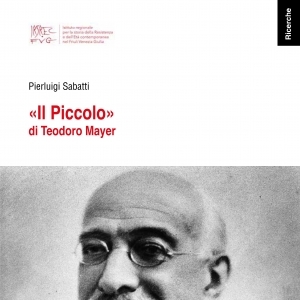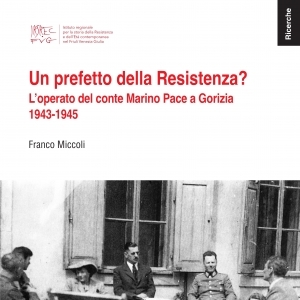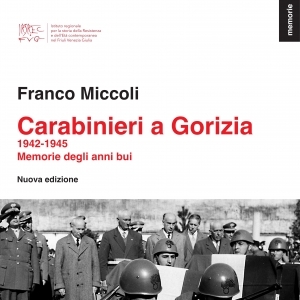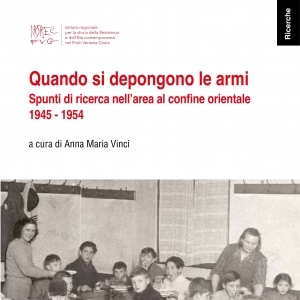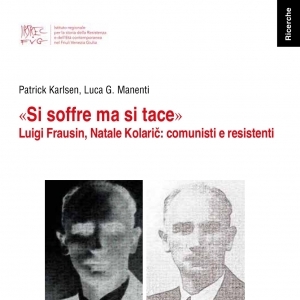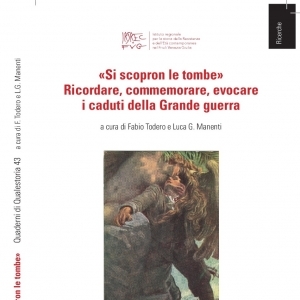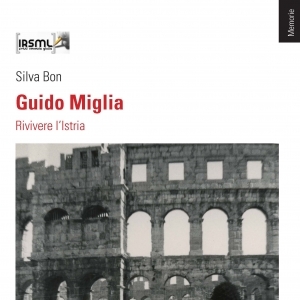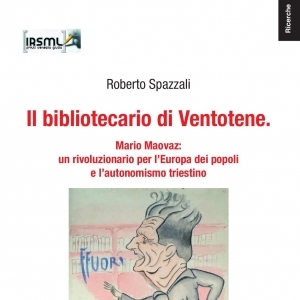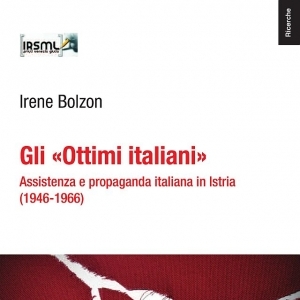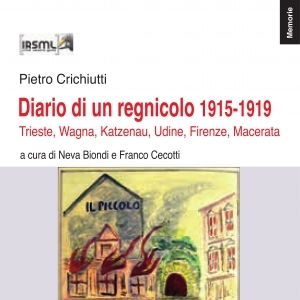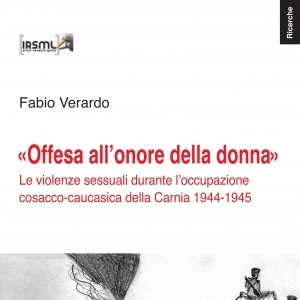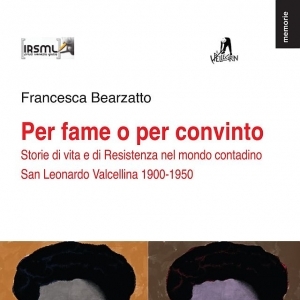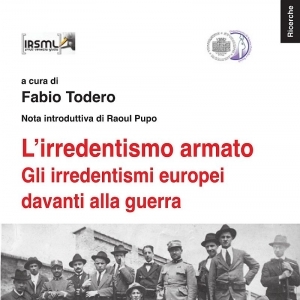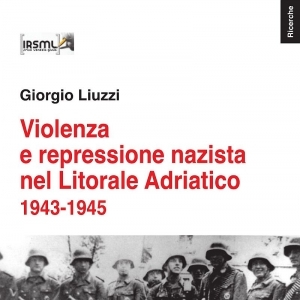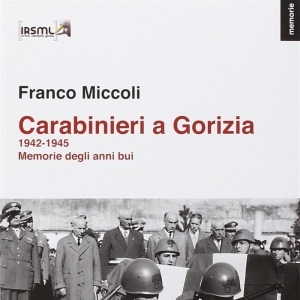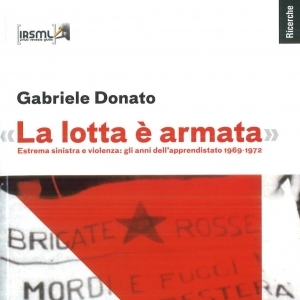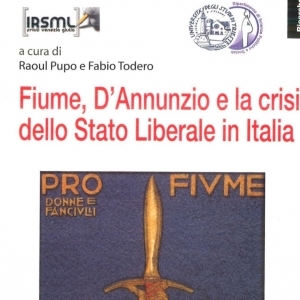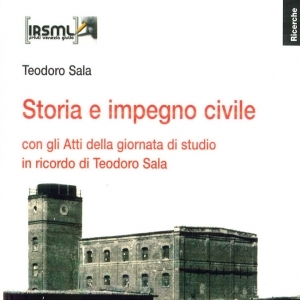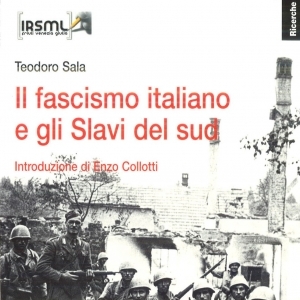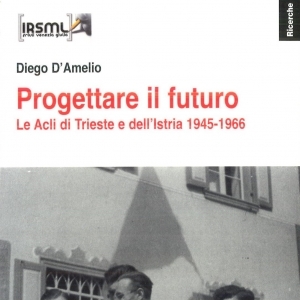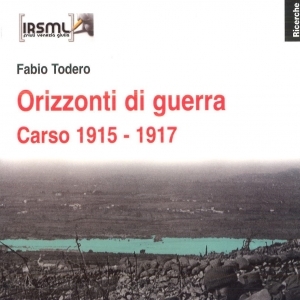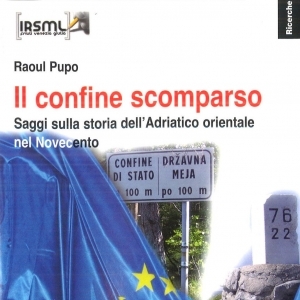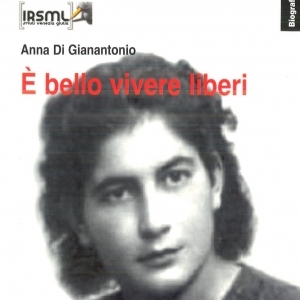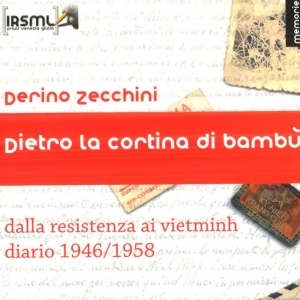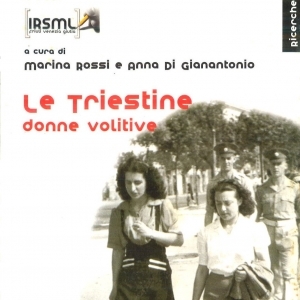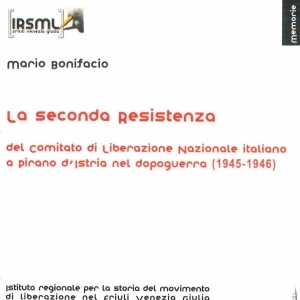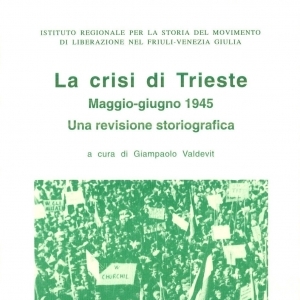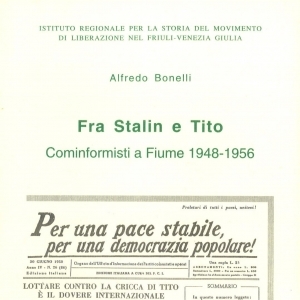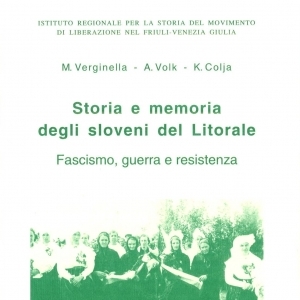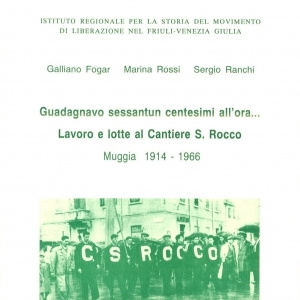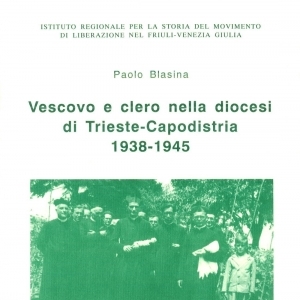La Grande guerra ai confini: italiani d'Austria e comunità di frontiera 1914-18
a cura di Marco Mondini e Fabio Todero
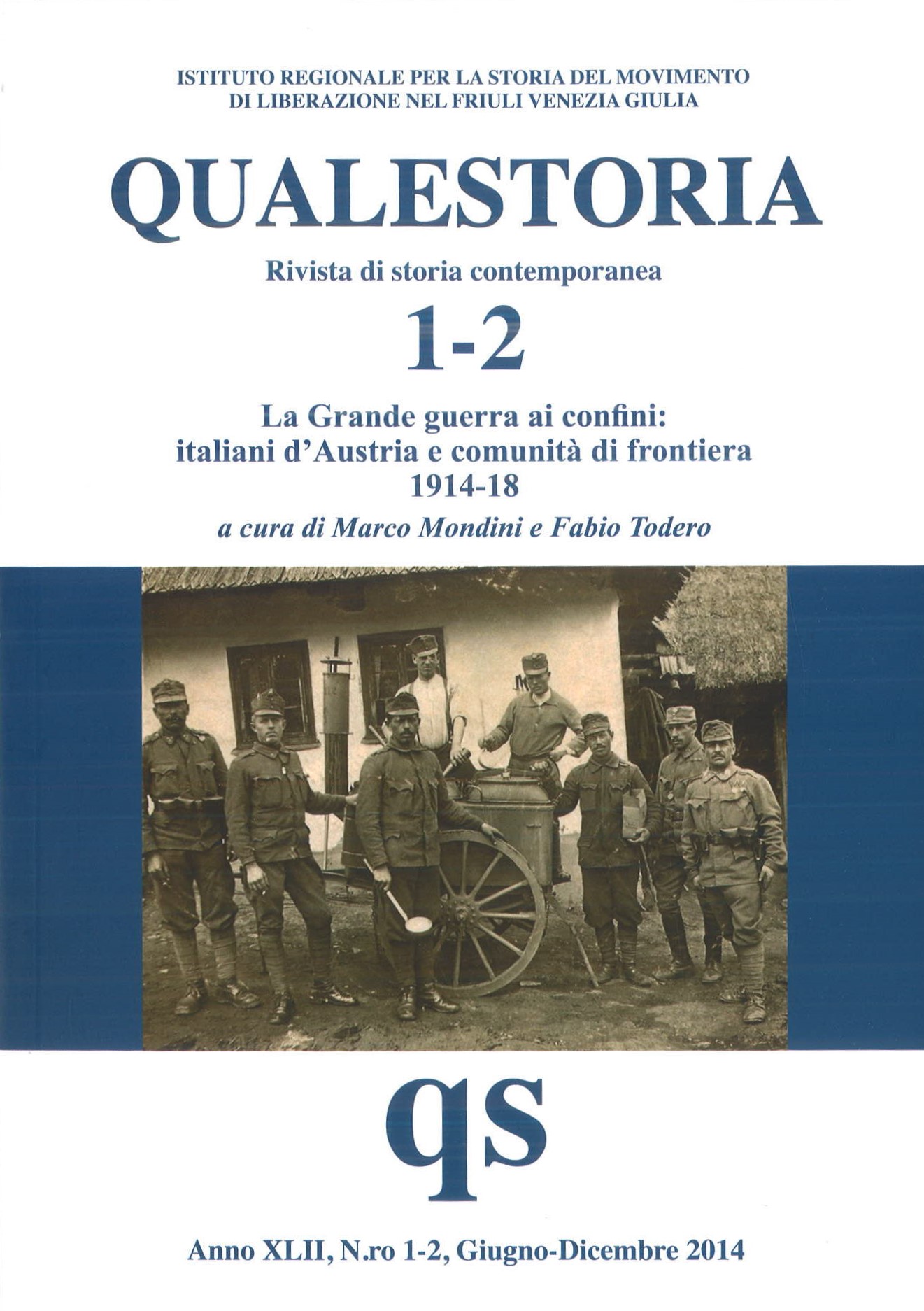
| La Grande Guerra ai confini: italiani d'Austria 1914-18 The Great War on the borders: Italians of Austria and border communities 1914-1918 a cura di Marco Mondini e Fabio Todero |
||
| Diego D’Amelio | Lettera del direttore | 5 |
| Marco Mondini, Fabio Todero | Nota introduttiva – Introductory note | 7 |
| Studi e Ricerche | Studies and researches | |
| Marco Mondini | La Grande guerra e il Trentino. Prefazione - The Great War and Trentino. Preface | 9 |
| Francesco Frizzera | L’evacuazione dei profughi trentini durante la Prima guerra mondiale. Tutelati dallo Stato o considerati inaffidabili? - The expulsion of Trentino’s civilian population during the First World War. Protected by the State or considered disloyal citizens? | 15 |
| Simone Bellezza | I prigionieri trentini in Russia durante la Prima guerra ondiale: linee e prospettive di ricerca -Italian POWs in Russia during the First World War: an Outline of Research Perspectives | 41 |
| Alessandro Salvador | Considerazioni sul rimpatrio e la smobilitazione dei soldati austro-ungarici di nazionalità italiana nel primo dopoguerra - Some thoughts on the repatriation and demobilization of Italian-speaking Austro-Hungarian soldiers after World War I | 59 |
| Anna Grillini | Psichiatria e persone tra guerra e frontiere, il manicomio di Pergine Valsugana tra il 1909 e il 1924. Primi risultati di una ricerca in corso -Psychiatry and people between war and borders, the psychiatric hospital of Pergine Valsugana between 1909 and 1924, the first results of an current research | 77 |
| Fabio Todero | La Grande Guerra e la Venezia Giulia. Prefazione - The Great War and Venezia Giulia. Preface | 91 |
| Aleksej Kalc | La questione dell’emigrazione e dell’obbligo militare in Austria alla vigilia della Grande guerra - The emigration issue and the compulsory military service in Austria on the eve of World War I | 97 |
| Franco Cecotti | Trieste 1914-1915. Feriti, morti e la scoperta della guerra moderna – Trieste 1914-1915. Wounded and dead soldiers and the discovery of the modern war | 111 |
| Roberto Pignataro | Il «primo volontario»: il mito di Guglielmo Oberdan e la Grande guerra - «The first volunteer»: the myth of Guglielmo Oberdan and the Great War | 131 |
| Gaetano Dato | La memoria della Grande guerra nei discorsi ufficiali presso il Sacrario di Redipuglia. Dalla ricostruzione al boom economico - The memory of the Great War in the official speeches at the Redipuglia Shrine. From the postwar reconstruction period to the Italian economic miracle | 155 |
| Documenti e problemi | Documents and problems | |
| Marina Rossi | Viktor Sosič ferroviere dell’i.r. governo nel vortice di due guerre mondiali – Viktor Sosic railwayman of i.r. government caught up in the maelstrom of two world wars | 175 |
| Stefan Wedrac | Lo scioglimento della Dieta provinciale di Trieste nel 1915 - The dissolution of the provincial diet of Trieste in 1915 | 187 |
| Percorsi bibliografici | ||
| Fabio Degli Esposti | Fine della storia economica (e sociale) della Grande guerra? Una panoramica sulle tendenze della ricerca nelle riviste dell’ultimo ventennio - The end of the economic (and social) history of the Great War? An overview of the journals’ research trends of the last twenty years | 205 |
| Gli autori di questo numero | 217 | |
| Elenco dei referee 2009-2013 | 220 | |
Gli autori di questo numero
Simone Attilio Bellezza è assegnista di ricerca presso il dipartimento di Lettere e Filosofia dell’Università di Trento. Addottoratosi all’Università Ca’ Foscari (2007) e di San Marino (2010), si occupa di storia dell’URSS, soprattutto durante la Seconda guerra mondiale e nel periodo del Disgelo. È redattore della rivista «Snodi. Pubblici e privati nella storia contemporanea». Il suo ultimo libro Ucraina. Insorgere per la democrazia è dedicato al processo di democratizzazione nell’Ucraina post-sovietica.
Franco Cecotti, già docente di italiano e storia negli istituti superiori di Trieste, collabora con l’Irsml FVG, di cui è stato presidente, ed è vicepresidente dell’ANED provinciale di Trieste. Ha collaborato con il MIUR in diversi progetti nazionali di formazione dei docenti sulla didattica della storia contemporanea. Suoi interessi di ricerca sono lo studio dei confini e la loro rappresentazione cartografica, l’emigrazione italiana, le condizioni dei civili durante la Grande guerra, l’uso della fotografia come fonte storica, tutti temi sui quali ha pubblicato numerosi saggi e lavori.
Gaetano Dato ha conseguito nel 2013 il dottorato in Storia contemporanea presso la Scuola Dottorale in Scienze Umanistiche dell’Università di Trieste, con uno studio sull’uso politico della storia e sul rapporto tra politica e religione in relazione ai principali luoghi della memoria nordadriatica. Ha scritto per le riviste scientifiche quali «Acta Histriae», «West Croatian History Journal», «Memoria e Ricerca», «Southeastern Europe - Brill». Ha recentemente pubblicato per la casa editrice LEG di Gorizia uno studio sulla strage di Vergarolla, presentato lo scorso giugno presso la Camera dei deputati: Vergarolla, 18 agosto 1946. Gli enigmi di una strage tra conflitto mondiale e Guerra Fredda.
Fabio Degli Esposti (Bologna, 1965) è ricercatore di storia contemporanea all’Università di Modena e Reggio Emilia. Si è occupato di storia economica e sociale italiana ed europea fra Otto e Novecento, studiando il rapporto fra istituzioni militari e sviluppo industriale. Negli ultimi quindici anni ha studiato e scritto prevalentemente su temi relativi alla Grande guerra, con una particolare attenzione per ambiti come la mobilitazione industriale, la politica interna italiana, l’atteggiamento degli intellettuali europei di fronte alla prima guerra totale della storia.
Francesco Frizzera (n. 1985), laureato a Trento (2009) con una tesi su nazionalismo ed istruzione nelle isole linguistiche tedesche del Trentino, è dottorando di ricerca presso l’Università degli studi di Trento (2013) con un progetto relativo ai profughi trentini durante la Grande guerra e fa parte del gruppo di ricerca di ISIG-FBK «World War I 1914-1918. Trentino, Italy, Europe (2013-2015)», coordinato da Marco Mondini.
Anna Grillini ha conseguito la laurea triennale in Studi Storici all’Università di Bologna. Trasferitasi a Trento, nel 2012 si è laureata con lode in Scienze Storiche e forme della memoria. Dal 2013 è dottoranda presso l’Università di Trento e membro dell’unità di ricerca «La Prima guerra mondiale, 1914-1918. Trentino, Italia, Europa» dell’Istituto Storico Italo-Germanico. Attualmente sta approfondendo il tema dei traumi bellici sui civili, attraverso la documentazione dell’ex ospedale psichiatrico di Pergine Valsugana.
Aleksej Kalc opera presso il Centro di ricerca dell'Accademia slovena delle scienze e delle arti (Lubiana) ed è professore associato presso l’Università di Nova Gorica. Autore di numerosi saggi, i suoi studi si collocano nel campo della storia sociale e riguardano soprattutto la storia delle migrazioni, la storia urbana, le aree di confine, i rapporti sociali, le questioni etniche, le politiche demografiche ed emigratorie.
Marco Mondini, normalista, è ricercatore dell’Istituto storico italo-germanico di Trento e insegna storia contemporanea nell’Università di Padova. Tra i suoi libri: La politica delle armi. Il ruolo dell’esercito nell’avvento del fascismo (Bari-Roma 2006), Alpini. Parole e immagini di un mito guerriero(Bari-Roma 2008), Generazioni intellettuali (Pisa 2010), Narrating War. Modern and contemporqary Perspectives (Bologna-Berlino 2013) e La guerra italiana. Partire, raccontare, tornare 1914-1918 (Bologna 2014).
Roberto Pignataro (Trieste, 22 aprile 1981) ha conseguito la laurea magistrale in Storia indirizzo contemporaneo presso l’Università degli Studi di Trieste con una tesi sul mito fascista di Guglielmo Oberdan. Collabora come educatore e divulgatore con alcune associazioni ed è supplente a nomina breve nelle scuole.
Marina Rossi è ricercatrice dell’Irsml FVG. Autrice di numerosi contributi riguardanti la storia del lavoro e del movimento operaio organizzato nelle province meridionali dell’Impero asburgico, la lotta politica nel nord-est d’Italia dal primo dopoguerra alla fine della Seconda guerra mondiale, ha all’attivo una vasta produzione documentaristica. È particolarmente nota in Italia e all’estero per le ricerche riguardanti il fronte russo della Grande guerra ed il mondo sovietico. Tra i suoi volumi più importanti, I prigionieri dello Zar (Milano, 1997), Irredenti giuliani al fronte russo (Udine 1999), Le Streghe della notte. Storia e testimonianze dell’aviazione femminile in URSS (1941-1945) (Milano 2003), Evgenij Chaldej. Un grande fotografo di guerra (Torino 2006), e più recentemente È in uscita il volume Soldati dell’armata rossa al confine orientale 1941-1945. Un capitolo inedito e controverso della resistenza europea(Gorizia 2014).
Alessandro Salvador (1979), ha studiato storia contemporanea a Trieste e Trento, conseguendo il dottorato in Studi Storici nel 2010. Attualmente collabora con l’Università degli Studi di Trento dove è stato assegnista della Fondazione Caritro. È stato visiting researcher con borse del DAAD presso l’Institut für Zeitgeschichte di Monaco e tramite il progetto CENDARI presso il King’s College di Londra. Tra le sue pubblicazioni vi è il volume La guerra in tempo di pace. Gli ex combattenti e la politica nella Repubblica di Weimar (Trento 2013).
Fabio Todero, insegnante e ricercatore dell’Irsml FVG si occupa in particolare di storia del confine orientale, della Grande guerra e della sua memoria. Tra le sue pubblicazioni più recenti, il volumeUna violenta bufera. Trieste 1914 (Trieste 2013), Le trincee della persuasione: fronte interno e forme della propaganda di guerra, in La società italiana e la Grande Guerra, a c. di G. Procacci, «Annali della Fondazione Ugo La Malfa. Storia e politica», La Grande guerra e la sua rappresentazione letteraria in Italia, in La guerra italo-austriaca (1915-1918), a c. di N. Labanca, O. Überregger (Bologna 2014).
Stefan Wedrac è ricercatore presso il dipartimento per la storia moderna e contemporanea dell'Accademia Austriaca delle Scienze a Vienna. Inoltre insegna all'Institute for European Studies a Vienna. Le sue pubblicazioni trattano degli ultimi decenni della monarchia austriaca, particolarmente della storia sociale, militare e degli italiani in Austria.
Abstracts
Abstract – The expulsion of Trentino’s civilian population during the First World War. Protected by the State or considered disloyal citizens?
Francesco Frizzera
Since the Southern border area of Trentino became a battlefield in May 1915, about 110.000 Italian-speaking inhabitants of Trentino were displaced, part in Austro-Hungarian internal regions (75.000), part in Italian Kingdom (35.000). This article analyses the historiography on this topic and outlines the predominant scientific approaches of the existing literature. Is possible to argue that the greatest part of these studies is based on local archivist sources and on diaries, letters and memoires, which provide us with a good description of the matter, although often restricted to single aspects of the general topic. Therefore, the article points out some potential research lines, based on other archivist sources and a transnational perspective. One of these research issues regards the evacuation and the displacement policy carried out by the Austrian Army during MayJune 1915, whose reasons are only touched on by the existing literature. The article argues that most of the expulsions ordered outside the garrison cities find their ultimate reason in the overrated fear of the «untrustworthy» civilian population speaking the same language of the enemy. It also underlines that this element of supposed disloyalty marks out the whole displacement policy.
Key words: Trentino, refugees, historiography, disloyal citizens
Parole chiave: Trentino, profughi, storiografia, cittadini inaffidabili
Abstract – Italian POWs in Russia during the First World War: an Outline of Research Perspectives
Simone Bellezza
This article begins with a thorough analysis of the international historiography on the POWs during WWI and, in particular, of the studies dedicated to the Italian soldiers of the Habsburg army, who fell into captivity on the Eastern Front. Since the Czarist empire was trying to exploit the nationality factor to weaken the Austro-Hungarian army, Russian authorities offered the Italian POWs to go fighting against Austria in the Italian army, and these soldiers were faced with the uncanny plight of choosing between two nations. The war radically transformed the perception of national belonging of these men, who, after the October revolution, were also exposed to the propaganda of the Bolshevik regime. The author demonstrates that past historiography has not paid enough attention to the WWI as an event, which forced the soldiers to reflect on their own identity, and argues that a more attentive look at both Russian and Italian documents would allow a better understanding of the dynamics of national and social self-identification during WWI. In particular, the prison camp emerges as place of national education of a small élite, which would be determinant in the political life of the territories annexed to the Italian state after WWI.
Key words: WWI, POWs, national identity, Trentino, Russian empire.
Parole chiave: Prima guerra mondiale, prigionieri di guerra, identità nazionale, Trentino, Impero russo.
Abstract ‒ Some thoughts on the repatriation and demobilization of Italian-speaking Austro-Hungarian soldiers after World War I
Alessandro Salvador
During World War I, general mobilization and conscription forced thousands of Italian-speaking citizens of the Austro-Hungarian Empire to fight in the Eastern front. Those who were taken prisoners became the object of bilateral treaties between Russia and Italy. The others returned to civilian life in a different country, after Italy’s annexation of Trentino, South Tyrol and Venezia Giulia. This article outlines how the Italian government managed the repatriation of former Austrian prisoners and the way it treated veterans of the enemy army living within its new borders. Furthermore, the article considers the relationship and mutual interactions between the central government and the authorities of the newly acquired territories concerning the problems of demobilization and assistance to ex combatants. Finally, some remarks are dedicated to the Italian military operations in the Far East and the involvement in the Russian civil war.
Key words: prisoners, demobilization, Italy, Great war
Parole chiave: prigionieri, smobilitazione, nuove province, Grande guerra
Abstract - Psychiatry and people between war and borders, the psychiatric hospital of Pergine Valsugana between 1909 and 1924, the first results of an current research
Anna Grillini
After the end of the Great War, the psychiatric hospital of Pergine Valsugana received numerous soldiers and prisoners traumatized by war. In addition to these men, many civilians, particularly women, were hospitalized as a result of difficult experiences during the conflict. For decades, traumatic pathologies resulting from the war were considered prerogative of the soldiers, this research aims to shift the focus of this fundamental category to bring it to those people who, despite not having had experience in the trenches, suffer violence and shock such to compromise their mental sanity. The desire to investigate the effects of war on civilians is also the reason behind the decision to study the case of the asylum of Pergine Valsugana. The diaspora of the population of Trentino made this land one of the most tormented of the entire conflict, and the natural place for a research like this. After an introduction about the history of the psychiatric hospital of Pergine Valsugana, the article focuses on the mental health of civilians and the cause that psychiatrists attribute to these conditions.
Key words: Great war, trauma, psychiatric hospital, predisposition
Parole chiave: Grande guerra, trauma, ospedale psichiatrico, predisposizione
Abstract - The emigration issue and the compulsory military service in Austria on the eve of World War I
Aleksej Kalc
The article presents the police measures taken in Austria in March 1914 in order to prevent illegal emigration of conscripts. The measures consisted of a control system, spread along the state boundaries as well as over the main areas of origin of the emigration flows and along their routes heading abroad. The task of the system was the monitoring of the emigration traffic and the checking of the military position of the male travellers to intercept those among them without appropriate permits for leaving the state territory. The surveillance involved besides the police force also customs officers and railway staff. The measures did not change the normatives regulating the rights of persons under military service to emigrate, it only made the check procedures and those of passports issue stricter. Despite this, they came across opposition inside the government and brought about strong political protests because they put under question the freedom of emigration as a constitutional principal and the government’s careless attitude towards the population economic needs. The contribution rests on the dossier concerning the introduction and implementation of the special surveillance over emigration in the archive of the provincial authorities in Trieste.
Key words: emigration, compulsory military service, Austria-Hungary, Great War
Parole chiave: emigrazione, servizio militare obbligatorio, Austria-Ungheria, Grande guerra
Abstract – Trieste 1914-1915. Wounded and dead soldiers and the discovery of the modern war
Franco Cecotti
Between July and August 1914 began one of the most tragic wars in contemporary history. The first mass conflict was quickly perceived as an epochal massacre, first of all by the fighting soldiers and the civilians who lived near the front, while in a few months news of bloody battles, wounded and dead soldiers reached different and distant places. This study deals with Trieste, a town that was kept out of war until May 1915 as well as other towns under the Augsburg monarchy, and shows how information on what the war and the life at the front were like were delivered in peripheral towns. The ways through which information (despite the censorship) spread were the letters from the front, the newspapers, the wounded soldiers, sent back home to be restored to health, or the dead ones. These «channels», which made people aware of the human costs of the war, are thoroughly scrutinized in this essay and mainly analysed through new archives’ resources.
Key words: Trieste, the Great war, wounded soldiers, dead soldiers
Parole chiave: Trieste, Grande guerra, feriti, morti
Abstract – «The first volunteer»: the myth of Guglielmo Oberdan and the Great War
Roberto Pignataro
This essay aims to trace Guglielmo Oberdan’s mythopoetic role during the First World War. Specifically, it focuses on the influence this man – a hero of the Italian Risorgimento, charged with plotting to kill the Austrian Emperor Franz Joseph and consequently sentenced to death by hanging on December 20, 1882 – had on the young people who fought at the Italian front to conquer the “unredeemed lands”. The reevaluation of this character, who was to be transformed from a Resorgimental hero into the first volunteer of the Italian army that fought against the Austrian enemy, clearly comes out by analyzing the celebrations and pamphlets that were published during the war.
Key words: Oberdan, the Great war, irredentism, war volunteers
Parole chiave: Oberdan, Grande guerra, irredentismo, volontari di guerra.
Abstract ‒ The memory of the Great War in the official speeches at the Redipuglia Shrine. From the postwar reconstruction period to the Italian economic miracle
Gaetano Dato
The Redipuglia shrine is the most important WWI Italian mausoleum, containing more than 100.000 corpses. It is located on the former eastern Italian front, in the multiethnic Julian march region. It was built under fascism in 1938, but the alliance with Nazi Germany and the coming war, led the regime to not perform any commemoration after the opening ceremony. The golden age of the Redipuglia Shrine in Italian national public discourse was after WWII, and continued to grasp public attention until the 1960s. Tensions between Italy and Yugoslavia for the sovereignty of the Julian march and the massive participation of living Great War veterans made Redipuglia a perfect stage for Italian government politicians, such as De Gasperi and Moro. In this impressive memorial, authorities could deliver speeches in which they were able to integrate WWI into Republican national identity, choosing the memories of the Great War that fitted best with their political agenda. Based on historical newspaper and scientific literature, the article describes the relationship among the Italian state, the public memory of WWI and the Redipuglia shrine from the 1940s to the 1960s.
Key Words: Great War, memory, Redipuglia Shrine, commemoration
Parole chiave: Grande Guerra, memoria, Sacrario di Redipuglia, commemorazione
QUALESTORIA – RIVISTA DI STORIA CONTEMPORANEA
Periodico semestrale
N.S. anno XLII, n. 1-2, giugno-dicembre 2014
Registrazione del Tribunale di Trieste n. 455 del 23.2.1978
Iscrizione al ROC n. 16557 del 29.06.2000
Quote di abbonamento per il 2013:
ordinario 30 Euro; sostenitore 60 Euro; per l’estero 41,50 Euro.
Costo di questo numero 15 Euro; arretrati il doppio.
I versamenti vanno effettuati su:
- c.c.p. 12692349 intestato a Istituto regionale per la storia del movimento di liberazione nel Friuli Venezia Giulia
- BANCOPOSTA IT/48/H/07601/02200/000012692349
- Unicredit Banca IT 90 Z 02008 02230 000005469067


